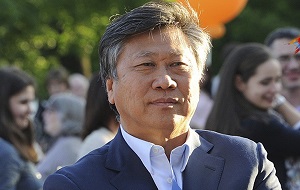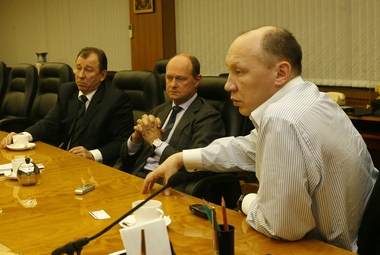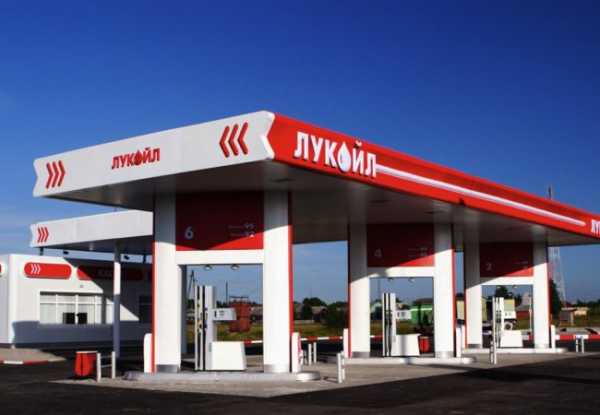Русакова, Влада Вилориковна. Роснефть влада вилориковна русакова
Русакова, Влада Вилориковна — Википедия
Материал из Википедии — свободной энциклопедии
Текущая версия страницы пока не проверялась опытными участниками и может значительно отличаться от версии, проверенной 7 апреля 2015; проверки требуют 3 правки. Текущая версия страницы пока не проверялась опытными участниками и может значительно отличаться от версии, проверенной 7 апреля 2015; проверки требуют 3 правки. В Википедии есть статьи о других людях с фамилией Русакова.Влада Вилориковна Русакова (род. 13 декабря 1953, Москва) — вице-президент «Роснефти» (с 2013), член правления ОАО «Газпром» (2003—2013).
В 1977 году окончила Московский институт нефтехимической и газовой промышленности им. И. М. Губкина по специальности «проектирование и эксплуатация газонефтепроводов, газохранилищ и нефтебаз» и аспирантуру в том же институте; с 1978 года работает в газовой отрасли[1].
В 2003 г. прошла обучение в Академии народного хозяйства при Правительстве РФ (ныне РАНХиГС), получила диплом МВА[2].
С 1995 года работала в «Газпроме»: начальник службы развития зарубежных проектов Управления перспективного развития, заместитель начальника Управления прогнозирования перспективного развития — начальник отдела развития зарубежных проектов Департамента перспективного развития (1997—1998), начальник Управления прогнозирования перспективного развития Департамента перспективного развития, науки и экологии (1998—2003), начальник Департамента перспективного развития, науки и экологии (2003)[1]. С 2003 года входила в состав правления компании, будучи одновременно начальником Департамента стратегического развития (с марта 2012 — начальником Департамента перспективного развития[3]). Возглавляла технический комитет «Техника и технология добычи и переработки нефти и газа»[4].
Экспертами подвергалась критике позиция департамента стратегического развития «Газпрома», давшего в 2007—2008 гг. отрицательное заключение по проекту газопровода «Алтай»[5].
В. В. Русакова критиковала ряд направлений деятельности «Газпрома», в частности, экономически неэффективные грандиозные стройки[1][6][7]. Уволена из компании в конце 2012 года по достижении пенсионного возраста[7].
С 3 апреля 2013 года — вице-президент компании «Роснефть», директор департамента развития газового бизнеса[7][8].
ru.wikiyy.com
Русакова, Влада Вилориковна - WikiVisually
1. Москва – Moscow is the capital and most populous city of Russia, with 13.2 million residents within the city limits and 17.8 million within the urban area. Moscow has the status of a Russian federal city, Moscow is a major political, economic, cultural, and scientific center of Russia and Eastern Europe, as well as the largest city entirely on the European continent. Moscow is the northernmost and coldest megacity and metropolis on Earth and it is home to the Ostankino Tower, the tallest free standing structure in Europe, the Federation Tower, the tallest skyscraper in Europe, and the Moscow International Business Center. Moscow is situated on the Moskva River in the Central Federal District of European Russia, the city is well known for its architecture, particularly its historic buildings such as Saint Basils Cathedral with its brightly colored domes. Moscow is the seat of power of the Government of Russia, being the site of the Moscow Kremlin, the Moscow Kremlin and Red Square are also one of several World Heritage Sites in the city. Both chambers of the Russian parliament also sit in the city and it is recognized as one of the citys landmarks due to the rich architecture of its 200 stations. In old Russian the word also meant a church administrative district. The demonym for a Moscow resident is москвич for male or москвичка for female, the name of the city is thought to be derived from the name of the Moskva River. There have been proposed several theories of the origin of the name of the river and its cognates include Russian, музга, muzga pool, puddle, Lithuanian, mazgoti and Latvian, mazgāt to wash, Sanskrit, majjati to drown, Latin, mergō to dip, immerse. There exist as well similar place names in Poland like Mozgawa, the original Old Russian form of the name is reconstructed as *Москы, *Mosky, hence it was one of a few Slavic ū-stem nouns. From the latter forms came the modern Russian name Москва, Moskva, in a similar manner the Latin name Moscovia has been formed, later it became a colloquial name for Russia used in Western Europe in the 16th–17th centuries. From it as well came English Muscovy, various other theories, having little or no scientific ground, are now largely rejected by contemporary linguists. The surface similarity of the name Russia with Rosh, an obscure biblical tribe or country, the oldest evidence of humans on the territory of Moscow dates from the Neolithic. Within the modern bounds of the city other late evidence was discovered, on the territory of the Kremlin, Sparrow Hills, Setun River and Kuntsevskiy forest park, etc. The earliest East Slavic tribes recorded as having expanded to the upper Volga in the 9th to 10th centuries are the Vyatichi and Krivichi, the Moskva River was incorporated as part of Rostov-Suzdal into the Kievan Rus in the 11th century. By AD1100, a settlement had appeared on the mouth of the Neglinnaya River. The first known reference to Moscow dates from 1147 as a place of Yuri Dolgoruky. At the time it was a town on the western border of Vladimir-Suzdal Principality
2. Российская Советская Федеративная Социалистическая Республика – The Republic comprised sixteen autonomous republics, five autonomous oblasts, ten autonomous okrugs, six krais, and forty oblasts. Russians formed the largest ethnic group, the capital of the Russian SFSR was Moscow and the other major urban centers included Leningrad, Novosibirsk, Yekaterinburg, Nizhny Novgorod and Samara. The Russian Soviet Republic was proclaimed on November 7,1917 as a sovereign state, the first Constitution was adopted in 1918. In 1922 the Russian SFSR signed the Treaty on the Creation of the USSR, the economy of Russia became heavily industrialized, accounting for about two-thirds of the electricity produced in the USSR. It was, by 1961, the third largest producer of petroleum due to new discoveries in the Volga-Urals region and Siberia, trailing only the United States and Saudi Arabia. In 1974, there were 475 institutes of education in the republic providing education in 47 languages to some 23,941,000 students. A network of territorially organized public-health services provided health care, the effects of market policies led to the failure of many enterprises and total instability by 1990. On June 12,1990, the Congress of Peoples Deputies adopted the Declaration of State Sovereignty, on June 12,1991, Boris Yeltsin was elected the first President. On December 8,1991, heads of Russia, Ukraine, the agreement declared dissolution of the USSR by its founder states and established the Commonwealth of Independent States. On December 12, the agreement was ratified by the Russian Parliament, therefore Russian SFSR denounced the Treaty on the Creation of the USSR and de facto declared Russias independence from the USSR. On December 25,1991, following the resignation of Mikhail Gorbachev as president of the Soviet Union, on December 26,1991, the USSR was self-dissolved by the Soviet of Nationalities, which by that time was the only functioning house of the Supreme Soviet. After dissolution of the USSR, Russia declared that it assumed the rights and obligations of the dissolved central Soviet government, the new Russian constitution, adopted on December 12,1993 after a constitutional crisis, abolished the Soviet system of government in its entirety. Initially, the state did not have a name and wasnt recognized by neighboring countries for five months. Meanwhile, anti-Bolsheviks coined the mocking label Sovdepia for the nascent state of the Soviets of Workers, on January 25,1918 the third meeting of the All-Russian Congress of Soviets renamed the unrecognized state the Soviet Russian Republic. The Treaty of Brest-Litovsk was signed on March 3,1918, on July 10,1918, the Russian Constitution of 1918 renamed the country the Russian Socialist Federative Soviet Republic. By 1918, during the Russian Civil War, several states within the former Russian Empire seceded, internationally, in 1920, the RSFSR was recognized as an independent state only by Estonia, Finland, Latvia and Lithuania in the Treaty of Tartu and by the short-lived Irish Republic. On December 30,1922, with the creation of the Soviet Union, the final Soviet name for the republic, the Russian Soviet Federative Socialist Republic, was adopted in the Soviet Constitution of 1936. By that time, Soviet Russia had gained roughly the same borders of the old Tsardom of Russia before the Great Northern War of 1700
3. Союз Советских Социалистических Республик – The Soviet Union, officially the Union of Soviet Socialist Republics was a socialist state in Eurasia that existed from 1922 to 1991. It was nominally a union of national republics, but its government. The Soviet Union had its roots in the October Revolution of 1917 and this established the Russian Socialist Federative Soviet Republic and started the Russian Civil War between the revolutionary Reds and the counter-revolutionary Whites. In 1922, the communists were victorious, forming the Soviet Union with the unification of the Russian, Transcaucasian, Ukrainian, following Lenins death in 1924, a collective leadership and a brief power struggle, Joseph Stalin came to power in the mid-1920s. Stalin suppressed all opposition to his rule, committed the state ideology to Marxism–Leninism. As a result, the country underwent a period of rapid industrialization and collectivization which laid the foundation for its victory in World War II and postwar dominance of Eastern Europe. Shortly before World War II, Stalin signed the Molotov–Ribbentrop Pact agreeing to non-aggression with Nazi Germany, in June 1941, the Germans invaded the Soviet Union, opening the largest and bloodiest theater of war in history. Soviet war casualties accounted for the highest proportion of the conflict in the effort of acquiring the upper hand over Axis forces at battles such as Stalingrad. Soviet forces eventually captured Berlin in 1945, the territory overtaken by the Red Army became satellite states of the Eastern Bloc. The Cold War emerged by 1947 as the Soviet bloc confronted the Western states that united in the North Atlantic Treaty Organization in 1949. Following Stalins death in 1953, a period of political and economic liberalization, known as de-Stalinization and Khrushchevs Thaw, the country developed rapidly, as millions of peasants were moved into industrialized cities. The USSR took a lead in the Space Race with Sputnik 1, the first ever satellite, and Vostok 1. In the 1970s, there was a brief détente of relations with the United States, the war drained economic resources and was matched by an escalation of American military aid to Mujahideen fighters. In the mid-1980s, the last Soviet leader, Mikhail Gorbachev, sought to reform and liberalize the economy through his policies of glasnost. The goal was to preserve the Communist Party while reversing the economic stagnation, the Cold War ended during his tenure, and in 1989 Soviet satellite countries in Eastern Europe overthrew their respective communist regimes. This led to the rise of strong nationalist and separatist movements inside the USSR as well, in August 1991, a coup détat was attempted by Communist Party hardliners. It failed, with Russian President Boris Yeltsin playing a role in facing down the coup. On 25 December 1991, Gorbachev resigned and the twelve constituent republics emerged from the dissolution of the Soviet Union as independent post-Soviet states
4. Россия – Russia, also officially the Russian Federation, is a country in Eurasia. The European western part of the country is more populated and urbanised than the eastern. Russias capital Moscow is one of the largest cities in the world, other urban centers include Saint Petersburg, Novosibirsk, Yekaterinburg, Nizhny Novgorod. Extending across the entirety of Northern Asia and much of Eastern Europe, Russia spans eleven time zones and incorporates a range of environments. It shares maritime borders with Japan by the Sea of Okhotsk, the East Slavs emerged as a recognizable group in Europe between the 3rd and 8th centuries AD. Founded and ruled by a Varangian warrior elite and their descendants, in 988 it adopted Orthodox Christianity from the Byzantine Empire, beginning the synthesis of Byzantine and Slavic cultures that defined Russian culture for the next millennium. Rus ultimately disintegrated into a number of states, most of the Rus lands were overrun by the Mongol invasion. The Soviet Union played a role in the Allied victory in World War II. The Soviet era saw some of the most significant technological achievements of the 20th century, including the worlds first human-made satellite and the launching of the first humans in space. By the end of 1990, the Soviet Union had the second largest economy, largest standing military in the world. It is governed as a federal semi-presidential republic, the Russian economy ranks as the twelfth largest by nominal GDP and sixth largest by purchasing power parity in 2015. Russias extensive mineral and energy resources are the largest such reserves in the world, making it one of the producers of oil. The country is one of the five recognized nuclear weapons states and possesses the largest stockpile of weapons of mass destruction, Russia is a great power as well as a regional power and has been characterised as a potential superpower. The name Russia is derived from Rus, a state populated mostly by the East Slavs. However, this name became more prominent in the later history, and the country typically was called by its inhabitants Русская Земля. In order to distinguish this state from other states derived from it, it is denoted as Kievan Rus by modern historiography, an old Latin version of the name Rus was Ruthenia, mostly applied to the western and southern regions of Rus that were adjacent to Catholic Europe. The current name of the country, Россия, comes from the Byzantine Greek designation of the Kievan Rus, the standard way to refer to citizens of Russia is Russians in English and rossiyane in Russian. There are two Russian words which are translated into English as Russians
5. Роснефть – Rosneft is an integrated oil company majority owned by the Government of Russia. Rosneft is headquartered in Moscows Balchug district near the Kremlin, across the Moskva River, Rosneft became Russias leading extraction and refinement company after purchasing assets of former oil giant Yukos at state-run auctions. In March 2013, Rosneft became the largest publicly traded oil company, Rosneft conducts oil and gas exploration and production activities on Sakhalin island, Siberia, Timan-Pechora field and in southern Russia, including Chechnya. It owns and operates two refineries, the refinery in Tuapse, on the Black Sea, focuses on refining high-gravity oil from western Siberia. Another plant in Komsomolsk-on-Amur is the easternmost refinery in Russia, Rosneft operates shipping, pipeline and marketing companies. As of 29 December 2006, the market value was US$83.908 billion. Rosneft net income fell 20% for the first quarter of 2009 from $2.56 billion to $2.06 billion due to the weakness of oil price, on December 7,2016,19. 5% of the company was sold to an anonymous buyer. Rosneft was established in 1993 as an enterprise with assets previously held by Rosneftegaz. During the early 1990s almost all Russian oil companies and refineries were extracted from Rosneft to form ten integrated companies, later their number was halved as a result of acquisitions. On 29 September 1995, an Order of the Government of Russia №971 transformed Rosneft into a joint stock company. In October 1998, the Russian government appointed Sergey Bogdanchikov as president, the company owned two obsolete refineries and several low-productive and poorly managed oil-producing assets. In the late 1990s, plans for Rosnefts privatization in Russia were made, in 2001, the company became Russias official representative on projects with production sharing agreements. In 2003, Rosneft began oil production at the Aday block in the Atyrau Region near the Caspian Sea in Western Kazakhstan, in 2004 Rosneft had increased oil output from 98.56 million bbl in 2001 to 148.26 million bbl. In the same year Rosneft agreed to merge with Gazprom but plans were discarded in May 2005 and it is alleged that Bogdanchikov did not wish to take a lesser role in the integrated company answering to Gazprom CEO Alexei Miller. Starting in 2004, the Russian government organized a series of auctions to sell oil giants Yukos assets, on 22 December 2004, Rosneft had purchased a then little known Russian oil company called Baikal Finance Group. Three days earlier, the previously unheard-of Baikal Group had purchased Yukos main asset Yuganskneftegaz at an auction for 9.35 billion dollars. Many viewed this as a de facto nationalization of Yugansk, andrei Illarionov, then a senior Putin economic advisor, denounced it as the scam of the year. With the addition of Yungansk Rosneft became Russias second-largest producer of oil and gas by 2005, in June 2007, Rosneft paid $731 million for the transportation assets of Yukos, which had declared bankrupt in August 2006 after three years of litigation over tax arrears
wikivisually.com
Русакова, Влада Вилориковна - Википедия
Материал из Википедии — свободной энциклопедии
Текущая версия страницы пока не проверялась опытными участниками и может значительно отличаться от версии, проверенной 7 апреля 2015; проверки требуют 2 правки. Текущая версия страницы пока не проверялась опытными участниками и может значительно отличаться от версии, проверенной 7 апреля 2015; проверки требуют 2 правки. В Википедии есть статьи о других людях с фамилией Русакова.Влада Вилориковна Русакова (род. 13 декабря 1953, Москва) — вице-президент «Роснефти» (с 2013), член правления ОАО «Газпром» (2003—2013).
Биография[ | ]
В 1977 году окончила Московский институт нефтехимической и газовой промышленности им. И. М. Губкина по специальности «проектирование и эксплуатация газонефтепроводов, газохранилищ и нефтебаз» и аспирантуру в том же институте; с 1978 года работает в газовой отрасли[1].
В 2003 г. прошла обучение в Академии народного хозяйства при Правительстве РФ (ныне РАНХиГС), получила диплом МВА[2].
С 1995 года работала в «Газпроме»: начальник службы развития зарубежных проектов Управления перспективного развития, заместитель начальника Управления прогнозирования перспективного развития — начальник отдела развития зарубежных проектов Департамента перспективного развития (1997—1998), начальник Управления прогнозирования перспективного развития Департамента перспективного развития, науки и экологии (1998—2003), начальник Департамента перспективного развития, науки и экологии (2003)[1]. С 2003 года входила в состав правления компании, будучи одновременно начальником Департамента стратегического развития (с марта 2012 — начальником Департамента перспективного развития[3]). Возглавляла технический комитет «Техника и технология добычи и переработки нефти и газа»[4].
Экспертами подвергалась критике позиция департамента стратегического развития «Газпрома», давшего в 2007—2008 гг. отрицательное заключение по проекту газопровода «Алтай»[5].
В. В. Русакова критиковала ряд направлений деятельности «Газпрома», в частности, экономически неэффективные грандиозные стройки[1][6][7]. Уволена из компании в конце 2012 года по достижении пенсионного возраста[7].
С 3 апреля 2013 года — вице-президент компании «Роснефть», директор департамента развития газового бизнеса[7][8].
Примечания[ | ]
Ссылки[ | ]
encyclopaedia.bid
Русакова Влада Вилориковна - Википедия
Материал из Википедии — свободной энциклопедии
(перенаправлено с «»)Текущая версия страницы пока не проверялась опытными участниками и может значительно отличаться от версии, проверенной 7 апреля 2015; проверки требуют 2 правки. Текущая версия страницы пока не проверялась опытными участниками и может значительно отличаться от версии, проверенной 7 апреля 2015; проверки требуют 2 правки. В Википедии есть статьи о других людях с фамилией Русакова.Влада Вилориковна Русакова (род. 13 декабря 1953, Москва) — вице-президент «Роснефти» (с 2013), член правления ОАО «Газпром» (2003—2013).
Биография[ | ]
В 1977 году окончила Московский институт нефтехимической и газовой промышленности им. И. М. Губкина по специальности «проектирование и эксплуатация газонефтепроводов, газохранилищ и нефтебаз» и аспирантуру в том же институте; с 1978 года работает в газовой отрасли[1].
В 2003 г. прошла обучение в Академии народного хозяйства при Правительстве РФ (ныне РАНХиГС), получила диплом МВА[2].
С 1995 года работала в «Газпроме»: начальник службы развития зарубежных проектов Управления перспективного развития, заместитель начальника Управления прогнозирования перспективного развития — начальник отдела развития зарубежных проектов Департамента перспективного развития (1997—1998), начальник Управления прогнозирования перспективного развития Департамента перспективного развития, науки и экологии (1998—2003), начальник Департамента перспективного развития, науки и экологии (2003)[1]. С 2003 года входила в состав правления компании, будучи одновременно начальником Департамента стратегического развития (с марта 2012 — начальником Департамента перспективного развития[3]). Возглавляла технический комитет «Техника и технология добычи и переработки нефти и газа»[4].
Экспертами подвергалась критике позиция департамента стратегического развития «Газпрома», давшего в 2007—2008 гг. отрицательное заключение по проекту газопровода «Алтай»[5].
В. В. Русакова критиковала ряд направлений деятельности «Газпрома», в частности, экономически неэффективные грандиозные стройки[1][6][7]. Уволена из компании в конце 2012 года по достижении пенсионного возраста[7].
С 3 апреля 2013 года — вице-президент компании «Роснефть», директор департамента развития газового бизнеса[7][8].
Примечания[ | ]
Ссылки[ | ]
encyclopaedia.bid
Русакова, Влада Вилориковна
В Википедии есть статьи о других людях с фамилией Русакова.
Влада Вилориковна Русакова (род. 13 декабря 1953, Москва) — вице-президент «Роснефти» (с 2013), член правления ОАО «Газпром» (2003—2013).
Биография
В 1977 году окончила Московский институт нефтехимической и газовой промышленности им. И. М. Губкина по специальности «проектирование и эксплуатация газонефтепроводов, газохранилищ и нефтебаз» и аспирантуру в том же институте; с 1978 года работает в газовой отрасли[1].
В 2003 г. прошла обучение в Академии народного хозяйства при Правительстве РФ (ныне РАНХиГС), получила диплом МВА[2].
С 1995 года работала в «Газпроме»: начальник службы развития зарубежных проектов Управления перспективного развития, заместитель начальника Управления прогнозирования перспективного развития — начальник отдела развития зарубежных проектов Департамента перспективного развития (1997—1998), начальник Управления прогнозирования перспективного развития Департамента перспективного развития, науки и экологии (1998—2003), начальник Департамента перспективного развития, науки и экологии (2003)[1]. С 2003 года входила в состав правления компании, будучи одновременно начальником Департамента стратегического развития (с марта 2012 — начальником Департамента перспективного развития[3]). Возглавляла технический комитет «Техника и технология добычи и переработки нефти и газа»[4].
Экспертами подвергалась критике позиция департамента стратегического развития «Газпрома», давшего в 2007—2008 гг. отрицательное заключение по проекту газопровода «Алтай»[5].
В. В. Русакова критиковала ряд направлений деятельности «Газпрома», в частности, экономически неэффективные грандиозные стройки[1][6][7]. Уволена из компании в конце 2012 года по достижении пенсионного возраста[7].
С 3 апреля 2013 года — вице-президент компании «Роснефть», директор департамента развития газового бизнеса[7][8].
Примечания
readtiger.com
Русакова, Влада Вилориковна - Gpedia, Your Encyclopedia
Текущая версия страницы пока не проверялась опытными участниками и может значительно отличаться от версии, проверенной 7 апреля 2015; проверки требуют 3 правки.
 Текущая версия страницы пока не проверялась опытными участниками и может значительно отличаться от версии, проверенной 7 апреля 2015; проверки требуют 3 правки. В Википедии есть статьи о других людях с фамилией Русакова.
Текущая версия страницы пока не проверялась опытными участниками и может значительно отличаться от версии, проверенной 7 апреля 2015; проверки требуют 3 правки. В Википедии есть статьи о других людях с фамилией Русакова. Влада Вилориковна Русакова (род. 13 декабря 1953, Москва) — вице-президент «Роснефти» (с 2013), член правления ОАО «Газпром» (2003—2013).
Биография
В 1977 году окончила Московский институт нефтехимической и газовой промышленности им. И. М. Губкина по специальности «проектирование и эксплуатация газонефтепроводов, газохранилищ и нефтебаз» и аспирантуру в том же институте; с 1978 года работает в газовой отрасли[1].
В 2003 г. прошла обучение в Академии народного хозяйства при Правительстве РФ (ныне РАНХиГС), получила диплом МВА[2].
С 1995 года работала в «Газпроме»: начальник службы развития зарубежных проектов Управления перспективного развития, заместитель начальника Управления прогнозирования перспективного развития — начальник отдела развития зарубежных проектов Департамента перспективного развития (1997—1998), начальник Управления прогнозирования перспективного развития Департамента перспективного развития, науки и экологии (1998—2003), начальник Департамента перспективного развития, науки и экологии (2003)[1]. С 2003 года входила в состав правления компании, будучи одновременно начальником Департамента стратегического развития (с марта 2012 — начальником Департамента перспективного развития[3]). Возглавляла технический комитет «Техника и технология добычи и переработки нефти и газа»[4].
Экспертами подвергалась критике позиция департамента стратегического развития «Газпрома», давшего в 2007—2008 гг. отрицательное заключение по проекту газопровода «Алтай»[5].
В. В. Русакова критиковала ряд направлений деятельности «Газпрома», в частности, экономически неэффективные грандиозные стройки[1][6][7]. Уволена из компании в конце 2012 года по достижении пенсионного возраста[7].
С 3 апреля 2013 года — вице-президент компании «Роснефть», директор департамента развития газового бизнеса[7][8].
Примечания
Ссылки
www.gpedia.com
Влада Вилориковна Русакова - Википедия
Материал из Википедии — свободной энциклопедии
(перенаправлено с «»)Текущая версия страницы пока не проверялась опытными участниками и может значительно отличаться от версии, проверенной 7 апреля 2015; проверки требуют 2 правки. Текущая версия страницы пока не проверялась опытными участниками и может значительно отличаться от версии, проверенной 7 апреля 2015; проверки требуют 2 правки. В Википедии есть статьи о других людях с фамилией Русакова.Влада Вилориковна Русакова (род. 13 декабря 1953, Москва) — вице-президент «Роснефти» (с 2013), член правления ОАО «Газпром» (2003—2013).
Биография[ | ]
В 1977 году окончила Московский институт нефтехимической и газовой промышленности им. И. М. Губкина по специальности «проектирование и эксплуатация газонефтепроводов, газохранилищ и нефтебаз» и аспирантуру в том же институте; с 1978 года работает в газовой отрасли[1].
В 2003 г. прошла обучение в Академии народного хозяйства при Правительстве РФ (ныне РАНХиГС), получила диплом МВА[2].
С 1995 года работала в «Газпроме»: начальник службы развития зарубежных проектов Управления перспективного развития, заместитель начальника Управления прогнозирования перспективного развития — начальник отдела развития зарубежных проектов Департамента перспективного развития (1997—1998), начальник Управления прогнозирования перспективного развития Департамента перспективного развития, науки и экологии (1998—2003), начальник Департамента перспективного развития, науки и экологии (2003)[1]. С 2003 года входила в состав правления компании, будучи одновременно начальником Департамента стратегического развития (с марта 2012 — начальником Департамента перспективного развития[3]). Возглавляла технический комитет «Техника и технология добычи и переработки нефти и газа»[4].
Экспертами подвергалась критике позиция департамента стратегического развития «Газпрома», давшего в 2007—2008 гг. отрицательное заключение по проекту газопровода «Алтай»[5].
В. В. Русакова критиковала ряд направлений деятельности «Газпрома», в частности, экономически неэффективные грандиозные стройки[1][6][7]. Уволена из компании в конце 2012 года по достижении пенсионного возраста[7].
С 3 апреля 2013 года — вице-президент компании «Роснефть», директор департамента развития газового бизнеса[7][8].
Примечания[ | ]
Ссылки[ | ]
encyclopaedia.bid














